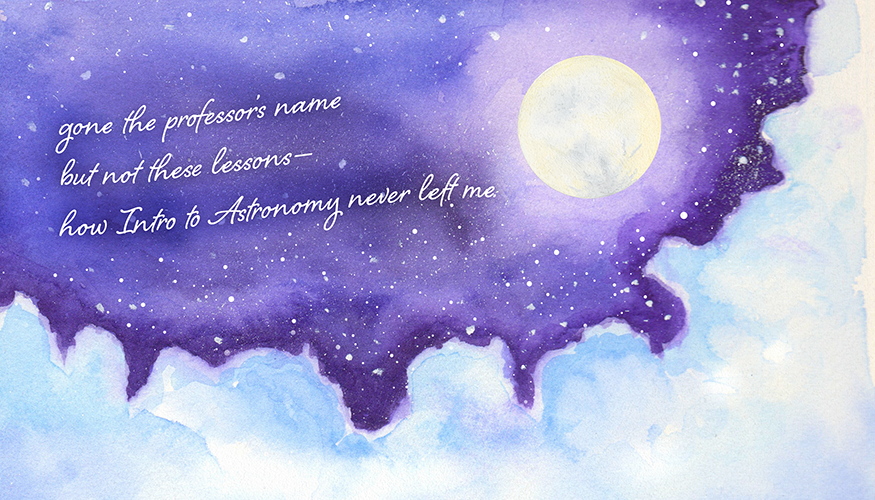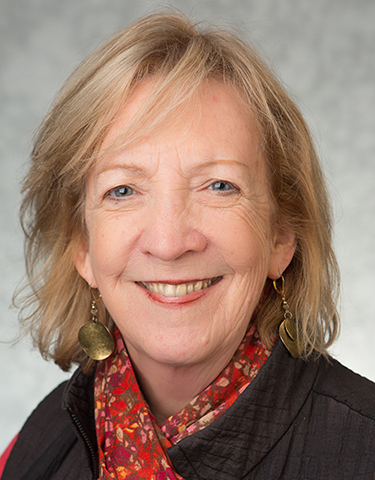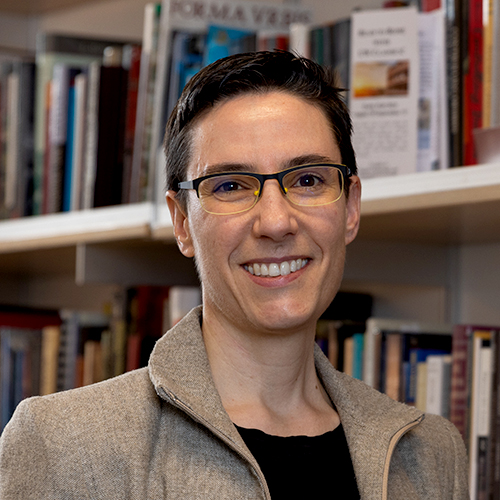
Poet Patricia Clark is headed to the moon, and she’s taking the University of Washington with her.
Clark (BA, Economics, 1974) is part of The Lunar Codex, a project that will send works by creative artists from across the globe to the moon on a 2024 space flight.
For the celestial project, Clark wrote “Astronomy ‘In Perfect Silence’,” a poem inspired by an astronomy class she took as a UW undergraduate in 1972 to fulfill a natural sciences requirement. A comment from the professor struck a chord and stayed with her.
“He said it’s good to go out and look up at the sky and remember how really small we all are, because it helps put your life in perspective,” says Clark, an alumna of the UW College of Arts & Sciences. “He reminded us that everybody is a speck in time.”
Clark still has the textbook for that class, a dogeared copy of Exploration of the Universe, now officially an antique. “I think I had a fantasy that I would get a telescope and learn a little bit more,” she says. “And the book does have these cool star charts. I just couldn’t get rid of it.” A half century later, she consulted the book for her moon-bound poem.
Destined to Write
Clark came to the University with an interest in writing. But instead of majoring in English, she chose economics.

“I figured I was a pretty good writer already and I read a lot of books, so I thought I should branch out and try something else,” she says. “But I was kidding myself. Because the minute I graduated, I really wanted to be a writer, and I didn’t know any living writers.”
That realization led Clark to return to the UW as a fifth-year student for classes in creative writing. She went on to earn an MFA in creative writing at University of Montana and a PhD in English from University of Houston, and became a professor of writing at Grand Valley State University in Michigan. She has published six books of poetry and two chapbooks, and her work has appeared in Poetry, The Atlantic, and other journals.
Retired from teaching now, Clark is still actively writing — which is why, when invited to submit a poem for The Lunar Codex, she jumped at the chance. “I immediately thought to write about that astronomy class,” she says.
Clark wrote the poem using a form called an abecedarian, which requires that each consecutive line start with the next letter of the alphabet. Readers of the poem are unlikely to notice that detail unless looking for it, but Clark enjoyed the challenge that form presented. “In a way, it’s better to have some constraints rather than nothing when you’re writing,” she says. “If you can just do anything, that’s terrifying.”
A Special Connection to the Moon
Clark’s poem opens with students rushing to class, passing familiar UW landmarks like Drumheller Fountain and Bagley Hall. As an undergraduate, she worked at University Hospital and often passed Drumheller Fountain on her way from her classes to her job.
But the real focus of the poem is the astronomy class. Though Clark did not remember the name of her professor when she wrote the poem, she called the UW Department of Astronomy after it was accepted for The Lunar Codex, hoping to identify and contact the professor. It was then she learned that George Wallerstein had taught the class and passed away in 2021 at age 91.
I do feel more of a connection [with the moon] because my poem will be there. Thinking about perpetuity, this is my little mark I get to leave, and I’m happy about that.
“I wish I could have shared the poem with him, but I’m sure he knows wherever he is that people are mentioning his name,” Clark says. “The poem had already gone to print by the time I learned his name, but if it’s reprinted, I plan to add a line dedicating it to him.”
The print version Clark refers to is The Polaris Trilogy: Poems for the Moon, an anthology of poems selected for The Lunar Codex. Clark is pleased to see her “moon” poem in print, but she’s even more eager to have it launched skyward. The Lunar Codex capsule will be aboard a National Aeronautics and Space Administration (NASA) flight transporting scientific instruments to the moon in preparation for Artemis II, NASA’s first manned mission to the moon since 1972.
“I’ve joked with my husband, ‘Where is the launch going to be? Maybe we should go and watch the rocket take off,’” Clark says.
All kidding aside, Clark does view the moon differently now.
“I do feel more of a connection because my poem will be there,” she says. “Thinking about perpetuity, this is my little mark I get to leave, and I’m happy about that. I think George Wallerstein would be happy as well, having his class recognized in this way all these years later.”
Read Patricia Clark’s poem, “Astronomy ‘In Perfect Silence’.”
More Stories

What the Sky Teaches Us
Brittany Kamai, an astrophysicist with knowledge of Pacific Islanders' Indigenous navigation using the sky, is teaching a new UW course, Pacific Indigenous Astrophysics.

Exploring Connections Through Global Literary Studies
The UW's new Global Literary Studies major encourages students to explore literary traditions from around the globe and all eras of human history.

Lifting Marginalized Voices — from Ancient Rome
"Interesting, frustrating, and necessary,” is how Sarah Levin-Richardson, professor of Classics, describes her research into the lives of enslaved individuals in the ancient world.
